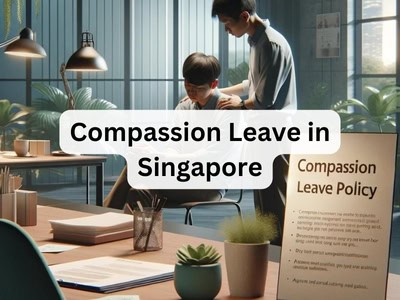This post is also available in:
简体中文 (Chinese (Simplified))
Compassion Leave: The Ethical Choice for Business in Singapore

When these things happen, the last thing you want to worry about is being forced to choose between keeping your job or being there to grieve with your family or take care of them if they are grievously ill.
Laws Concerning Time Off for Tragedy
Singapore does not currently offer any laws protecting the rights of employees when they need to take care of their family. Whether or not an employee can take a day off for emergencies such as this is completely at the discretion of the individual company, and the contract made between the business and the employee.
This is why it is very important for companies to offer compassion leave to their employees. This isn’t just the ethical thing to do. An employee who can’t take time off to grieve or take care of their family is very likely to hold a grudge against that company. Even assuming they did choose work over their family, the quality of their work is going to be very poor indeed.
No business will look good in the eyes of a customer if they find out that the depressed worker helping them had a baby pass away in the night and still had to come into work to serve them. Stories like this sometimes go viral, leading to a damaged reputation for the company and a drop-in sales.
Companies who do offer compassion leave can also benefit from offering it. When compassion leave is offered to the employees, it can help the company build a good reputation as a place that truly cares about its employees.
When an employee comes back from compassion leave, they can do so knowing that the company cared enough to give them time to grieve or take care of loved ones can make a big difference in their loyalty and work ethic. A company that supported them through hard times is a company worth working for, and the brightest employees who can find work anywhere will recognize that.
The very best employees who have in-demand jobs are those who can choose to be pickiest about where they work. Top pay isn’t enough to keep them, and after a certain amount of money, isn’t always the most valuable part of a package to them. These employees tend to look more at the kind of benefits are offered.
Compassion leave is a very important benefit. According to a 2017 survey conducted by MOM, 92% of all companies already offer a certain number of compassion leave days. MOM strongly encourages companies to offer these days, even if it isn’t a statutory requirement.
Common Practices
Most companies offer 3 days of paid compassionate leave, with some offering more or less. Compassion leave can be as long as from the death of the family member to the day of the funeral (a maximum of 5 days) to as little as 2 days.
These days are usually consecutive, following the death of an immediate family member. In rare cases, compassion leave may be used to care for an extremely sick family member, such as those injured in a car accident, or made drastically ill by cancer or other diseases. In these cases, an employee should work one on one with their employer if the days need to be broken up or used differently.
Today very few companies refuse to give compassion leave to their employees, but if this is the case they should reconsider. It’s not beneficial to be one of the tiny minority of companies that refuse to help families in their time of suffering. The best and most competitive companies know this and are quick to offer the leave needed for families so that they can take care of their family, grieve for losses, and get back to work knowing they’ve done everything they can do—and their employer allowed them. Compassion leave is the ethical thing to do no matter how big or how small the company.


